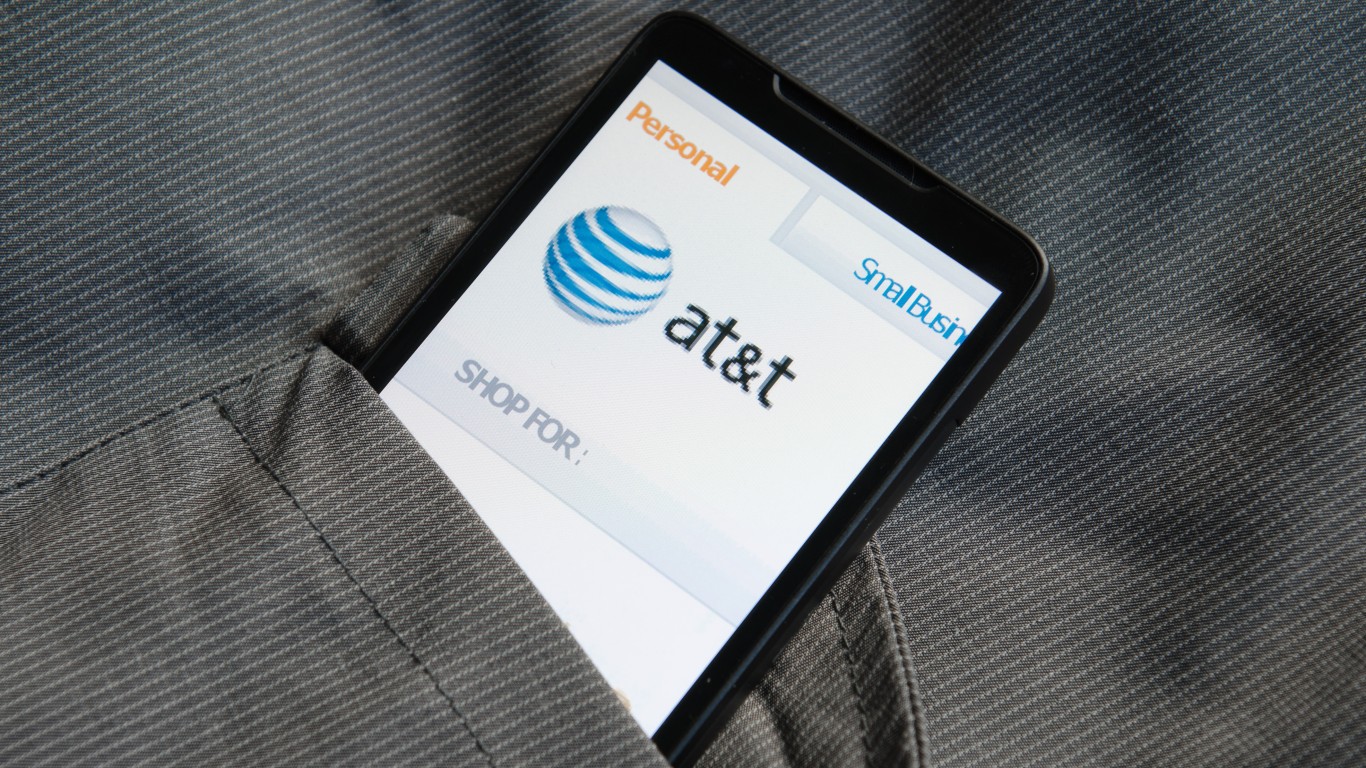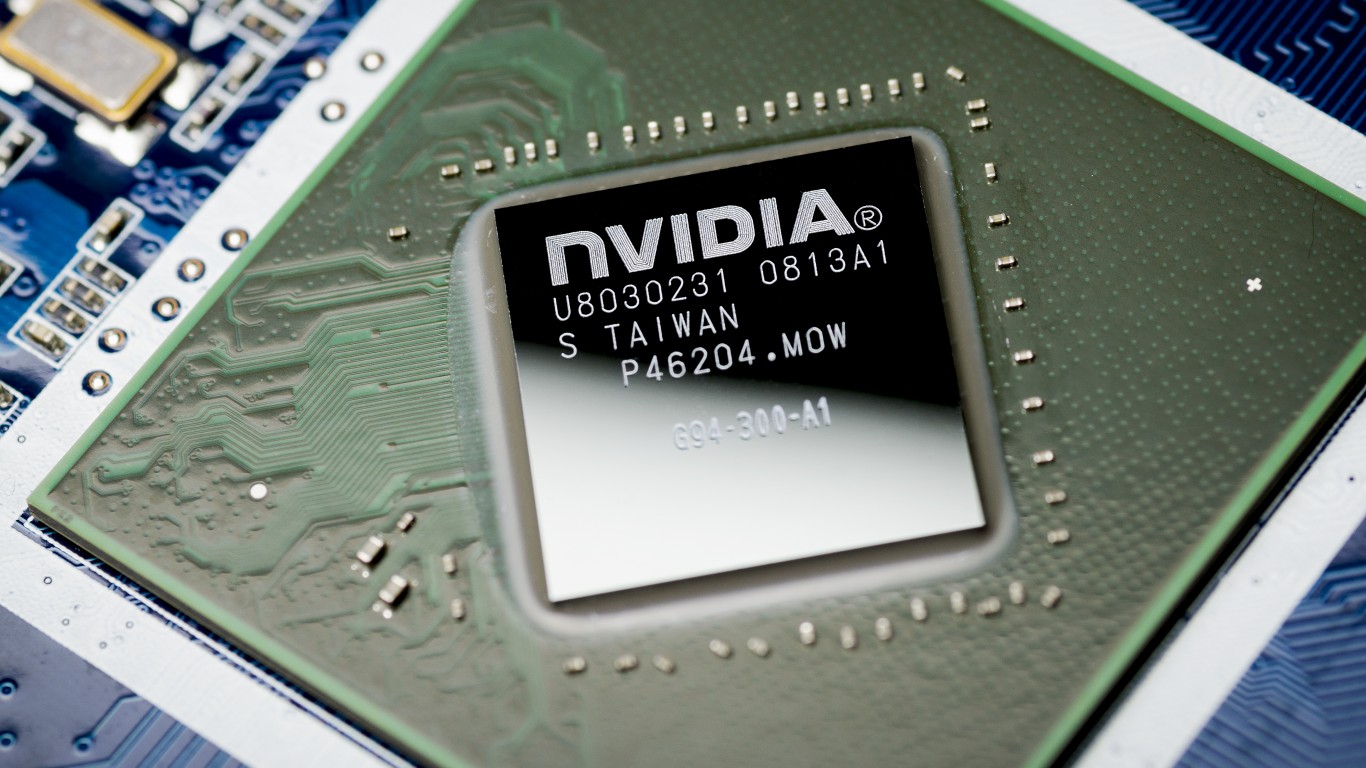
Interest rates have plunged back to some of the lowest recorded yields ever, and the reality is we are in some of the lowest rate levels since the 1950s. With the distinct possibility that the Federal Reserve will continue to keep rates at record lows for years, the 30-year Treasury bond has fallen to a paltry 1.37% coupon. Pretty small for committing capital to an investment for 30 years.
The problem for many income investors is they need higher yields but can’t risk buying junk bonds or highly leveraged closed-end and exchange-traded funds. The answer may be to look back to the equity markets, as some of the top stocks that have paid consistent, dependable long-term dividends have been hammered.
We screened our 24/7 Wall St. research database and found five companies that all pay at least a 6% dividend and offer a reasonable degree of safety. While not intended to replace guaranteed issues like Treasury bonds or certificates of deposit, they make sense for those seeking investment income who have a slightly higher risk tolerance.
Altria
This maker of tobacco products offers value investors a great entry point now and was hit recently as cigarette sales have slowed. Altria Group Inc. (NYSE: MO) is the parent company of Philip Morris USA (cigarettes), UST (smokeless), John Middleton (cigars), Ste. Michelle Wine Estates and Philip Morris Capital. PMUSA enjoys a 51% share of the U.S. cigarette market, led by its top cigarette brand Marlboro, one of the most valuable brands in the world.
Altria also owns over 10% of Anheuser-Busch InBev, the world’s largest brewer. In March 2008, it spun off its international cigarette business to shareholders. In December 2018, the company acquired 35% of Juul Labs, and it has purchased a 45% stake in cannabis company Cronus for $1.8 billion.
Shareholders now receive a 7.96% dividend. The BofA team has a Buy rating with a $50 target price. The posted consensus target is $48.93, and Altria stock closed at $43.46 on Friday.
AT&T
This is a top telecom and entertainment play. AT&T Inc. (NYSE: T) is the largest U.S. telecom company and provides wireless and wireline service to retail, enterprise and wholesale customers. The company’s wireless network serves approximately 124 million mobile connections, with 77 million postpaid subscribers.
While AT&T’s traditional wireline voice business has undergone a period of secular decline due to wireless substitution and cable competition, the company through WarnerMedia has become a diversified media and entertainment business.
WarnerMedia’s second-quarter 2020 operating revenue was $6.8 billion, down 22.9% year over year, with segment operating income contribution of $1.9 billion, down 18.4% from the year-ago quarter. AT&T estimated COVID-19 was responsible for $1.5 billion in lower sales at WarnerMedia. Turner’s advertising revenue plummeted 37%, to $796 million in the most recent quarter.
Investors receive a significant 7.03% dividend. BofA Securities has a $36 price target for the shares, which compares to the lower consensus target across Wall Street of $32.46. AT&T stock closed Friday at $29.69.
Dow
This stock offers investors growth and income potential. Dow Inc. (NYSE: DOW) was formed as a result of the merger of Dow and DuPont in 2017 and the subsequent spin-off 2019. The company provides materials science solutions for consumer care, infrastructure and packaging markets in North America, Europe, the Middle East and elsewhere.
Its Packaging & Specialty Plastics segment provides ethylene and propylene and aromatic products, as well as polyethylene, polyolefin elastomers, ethylene vinyl acetate and ethylene propylene diene monomer rubbers. The Industrial Intermediates & Infrastructure segment offers ethylene oxides, propylene oxide, propylene glycol and polyether polyols, aromatic isocyanates and polyurethane systems, coatings, adhesives, sealants, elastomers and composites. The Performance Materials and Coatings segment provides architectural paints and coatings, and industrial coatings that are used in maintenance and protective industries, wood, metal packaging, traffic markings, thermal paper and leather, as well as performance monomers and silicones, standalone silicones and home and personal care solutions.
Dow stock investors receive a 6.32% dividend. The $52 price objective that comes with the Jefferies Buy rating compares to the $42.68 consensus target and to Friday’s close at $43.59 a share.
Exxon Mobil
This energy giant is another safer long-term play for conservative investors. Exxon Mobil Corp. (NYSE: XOM) is the world’s largest international integrated oil and gas company. It explores for and produces crude oil and natural gas in the United States, Canada, South America, Europe, Africa and elsewhere.
Exxon also manufactures and markets commodity petrochemicals, including olefins, aromatics, polyethylene and polypropylene plastics, and specialty products, and it transports and sells crude oil, natural gas and petroleum products.
This was an outstanding short earlier in the year, especially when oil futures cratered to literally below zero, but one would think hedge funds are keeping a close eye on this position because if the economy opens up even some, the benchmark price could go back above the $50 level or higher.
The company pays investors a huge 8.45% dividend, which probably will continue to be defended. The BofA Securities Buy rating comes with a huge $77 price target. The consensus target is $47.95, and Exxon stock closed Friday at $41.01.
Marathon Petroleum
This is another solid way for more conservative accounts to play the energy sector. Marathon Petroleum Corp. (NYSE: MPC) is one of the largest independent petroleum refining and marketing companies in the United States.
Until just recently, the company operated approximately 2,750 retail sites under the Marathon and Speedway brands. In addition, it operates a logistics network of pipelines, barges, trucks and terminals that store and transport crude and products.
Earlier in August, the company announced it would sell Speedway to 7-11 in an all-cash deal valued at $21 billion, or $16.5 billion after-tax. The sale transforms the company’s balance sheet and creates options to revisit the corporate structure of MPLX. Many across Wall Street feel that with Speedway removed, the dislocation in refining value becomes even more transparent as the company trades much cheaper than its industry peers do.
Shareholders receive a 6.53% dividend. The Goldman Sachs has a Buy rating and a $44 price target, though the consensus is higher at $48.71. Marathon Petroleum stock closed most recently at $35.40 per share.
It should be noted that any or all these companies could at some point cut their dividends, but with that in mind, investors have a chance to buy blue-chip sector leaders at discount pricing with huge payouts. Even if the recovery in the share prices takes a while, the high dividends will make the wait more than tolerable.
Travel Cards Are Getting Too Good To Ignore
Credit card companies are pulling out all the stops, with the issuers are offering insane travel rewards and perks.
We’re talking huge sign-up bonuses, points on every purchase, and benefits like lounge access, travel credits, and free hotel nights. For travelers, these rewards can add up to thousands of dollars in flights, upgrades, and luxury experiences every year.
It’s like getting paid to travel — and it’s available to qualified borrowers who know where to look.
We’ve rounded up some of the best travel credit cards on the market. Click here to see the list. Don’t miss these offers — they won’t be this good forever.
Thank you for reading! Have some feedback for us?
Contact the 24/7 Wall St. editorial team.
 24/7 Wall St.
24/7 Wall St.


